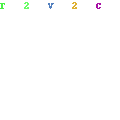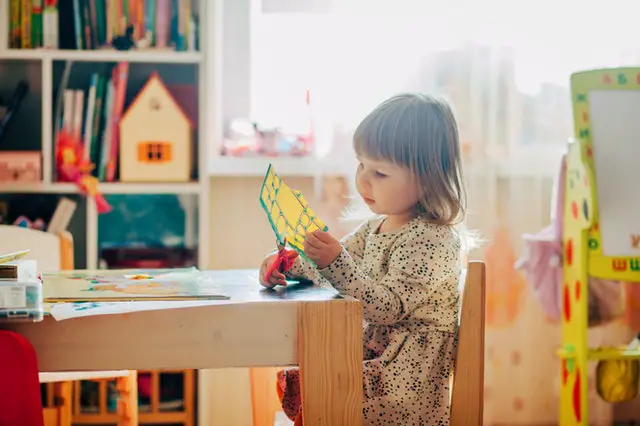How To Deal With A 4-Year-Old Hitting At School?
It would be quite embarrassing for parents to get a call from the school stating that their child has been hitting other children. Besides all the embarrassment and frustration, the parent worries about coping with such behavior.
Hitting, biting, and kicking in a 4-year-old is normal, but you cannot label him a bad kid. Although such impulsive behavior is normal, it doesn’t mean hitting someone is okay. As a parent, you need to focus on building positive behavior in your kid so that he gets over this aggression.
This article will explore why a 4-year-old hits other kids at school and how to cope with such impulsive behavior.

Why does my 4-year-old hit at school:
Why would a 4-year-old hit at school? Here are the possible reasons:
1- The child is not used to sharing:
Some 4-year-olds are not much used to sharing things with other kids. They are particular with their toys and stuff, especially those who are only children and have no siblings with them.
In this age group, kids usually know how to play by the side of another kid, but not necessarily with the kid, so they don’t like to share or take turns.
They might not like the idea when they experience sharing and taking turns at the preschool. Hence they hit the other child who intervenes in his personal space.
2- The child is unhappy overall:
Sometimes, kids use hitting as a tool to express their sadness, frustration, or exhaustion. For example, he might get upset about losing a game at school or be frustrated with all the learning in the class. It might be possible that the child gets super exhausted by the change in routine since he joined the preschool.
All these factors can lead to impulsive and aggressive behavior in children, which gets triggered by minor problems.
3- He is copying his elder/other kids:
There is a fair possibility that the child is hitting other children in school because he has seen someone doing it around him. It could be his parents, elder siblings, or other kids in the school or neighborhood who hit to show their anger and frustration.
A 4-year-old correlates his frustration or anger with hitting, just like he has seen other people around him.
4- He is not well:
Illness brings a lot of frustration within the body. Even small things bother him when a person is sick. When it comes to sickness in children, they become lethargic and down during that time. Crying over everything and being frustrated with small things is also a sign that your 4-year-old is not feeling well.
So if the child is hitting when he is unwell definitely means he is not liking being around other kids except his parents.
5- He may be annoyed by the other child:
Your child doesn’t need to hit the other child without any reason. Some kids do not want to be very social, talkative, or share personal stuff. So if other kids constantly bug him in the class might face impulsive behavior from him.
But again, hitting is not okay in any situation.
6- He may be naturally impulsive/short-tempered:
Some kids are naturally short-tempered and cannot control their anger. Their aggression and impulsiveness could be seen from their toddlerhood, so the parents need to stop them in toddlerhood so that it does not stick with them in their preschool age.
7- No one stops him from such behavior:
Some parents do not pay attention to their children’s aggressive and unacceptable behavior and just say they will be fine when they grow up. But, No, Dear parents, if you do not stop them at a young age, this behavior becomes their habit and goes on with them in adulthood.
8- Possibility of ADHD:
If the child hits other children of his age without any visible reason, then it could be a possibility that he has an ADHD problem. Children with ADHD are overly active and act impulsively to sustain attention. As a result, they may act angry, aggressive, and resistant toward other kids.
9- Trouble making friends at school:
Sometimes, 4-year-olds have trouble making friends. They do not know how to interact with class fellows, and he feels anxious. This stress and anxiety may make him loose his temper and raise his hands on others.
How to deal with a 4-year-old hitting at school:
Here are a few tips to help you overcome this problem of hitting at school.
1- Involve the teacher:
The first and most important thing to do is to connect with the child’s teacher when you receive a call from the school. They must have called you after they thought the hitting was increasing daily. Before that, every teacher must have tried to cope with and redirect the child when he hits at school.
Have a meeting with the teacher and ask about the triggering points she has noticed in your child. For example, does the hitting happens when the child is hungry, tired, doing a group activity, etc. Once you know what triggers his anger, you and the teacher can use the same language that could help the child overcome his anger.
2- Tell your child to use words instead of hands:
Once you know what triggers his anger and results in hitting the other child, try to help your child express himself verbally instead of using his hands. Verbal expression is better than physical expression, but remember he should not yell, scream or shout when expressing himself verbally.
Give a name to his emotions, like when he gets upset when another kid takes away his belonging, then teach him to say,” I am not happy about what you did,” or “ I am feeling sad about what you just did,” etc. when you teach them to express verbally, you are actually putting them in a positive and right way.
3- Always ask the child why he is hitting the other children:
Sometimes it gets easier for the teacher and the parents to identify the problem when they take the child in confidence. For example, if your 4-year-old is hitting in the school, and you receive the complaint, try talking to the child and ask him what bothers him, and he raises his hands.
Most 4- year-olds are expressive, and they can communicate when they feel. Try to give them words, “Do you feel sad or frustrated when you hit?”, “If you are tired, you can tell the teacher and should not hit anyone.”
Sometimes kids get frustrated with other kids because they simply annoy the child to the extent that he finds hitting as the final resort to keep that child away from him.
So, try to give your child words to express himself. Teach him how to communicate the problem with the guardian or teacher in “words”.
4- Work on his problem-solving skills/ Anger management skills:
Always repeat the message that physical violence is unacceptable in any form. You must focus on your child’s problem-solving and anger-management skills to eliminate violence in his personality.
It would be difficult to deal with a young child who is impulsive, but it is not impossible.
Do lots of pretend and play at home, where you play school and come up with some triggering situations you and his teacher had pointed out and see how he acts with you.
If he tries to hit you, stop him at once and ask him to brainstorm other ways to send his message to you. This redirection would help him forget about hitting and would engage him in finding different ways to manage his anger.
5- Overlook your behavior with him:
Kids replicate their actions from their surroundings. There is a fine possibility that the child is adapting to hitting from you or someone around him with whom he spends time. Physical violence is unacceptable in any form, meaning even you are not allowed to hit your child no matter how much he is annoying you.
Yelling, shouting, punishing, or hitting, none of these has ever helped a child to behave well. Instead, these tactics have always brought up negative consequences in the long term.
6- Repeat the basic rules:
Be firm on what is wrong. Never let your child’s hitting habit go unnoticed. Always repeat the basic rules in the house so your child learns them from a young age. It might be frustrating to repeat, but trust me kids learn faster when they hear something repeatedly.
Once the child gets used to the disciplinary rules every day, they will not take you to the point where you have to give them time outs, and only your warning would be enough for him.
7- Lessen screen time:
Cartoons are the biggest reason for a child hitting habit as this generation watches multiple cartoons which mostly show a lot of physical hitting.
Supervise the child throughout when he uses his phone/tablet to watch the cartoons. There are many good educational and behavioral wellness cartoon across youtube and Netflix which are age-appropriate for 4-year-olds that teaches the child how to manage their anger and frustration.
8- Reward him for being good:
Whenever you or his teacher catches your child behaving well, praise him and assure him that being good is the best thing to do. Ask the teacher to praise him when he shares at school, acts calmly in the crowd, and participates well in a group activity. Take daily updates at the start; after that, a weekly report would be fine.
At home, let him know that you know he has acted like a good boy in the class and how much you are proud of him for being a nice boy.
9- Help him develop empathy:
Teach your child to understand other child’s feelings. Ask him what he would feel if someone hit him for no apparent reason. Even if your child justifies the hitting habit, correct him that hitting is not the solution to the problem. You can always verbally communicate your concerns to the other kid you are annoyed with.
10- Cut sugar from his diet:
Excessive sugar intake in children makes them hyperactive and overreactive. If your child has more sugar in his diet, cut it gradually, and you will notice calmness in his personality. Excessive sugar intake is never good for a child by any means.
11- Reward at home:
Tell your little one that you will reward him for good behavior. Ask the teacher to write in his diary or give him a note stating that he didn’t hit anyone today.
Check the note daily and reward him for being a good boy. “Your teacher wrote that you didn’t hit anyone and have been a good boy. I’m so proud of you. Have this sticker for your good behavior”.
Whenever he hits, and the teacher writes that he did hit, don’t yell at him and tell him, “tomorrow we’ll see again, if you don’t hit, you’ll get a reward.”
Ensure that the note is private and your child’s actions are not declared to the rest of the class.
12- If nothing helps, ask the teacher to separate him from the kids he hits the most:
After applying all the possible tricks to overcome the hitting habits, if the child still hits at school, ask the teacher to separate your child from the ones he hits the most. Maybe distance would bring any betterment in your child’s behavior.
13- Never hesitate to seek medical help:
If you notice your child getting extra aggressive and hitting children in the school for no apparent reason, take him to a child psychologist and a doctor to see what they have to say about his aggressive personality.
This post may contain affiliate links. Read our disclosures here.
14- Story Books are the way to go:
4-year-olds love stories and storybooks. Stories can really influence the thinking of children of this age.
Get some cool story books about “hitting” and read them to your little one at bedtime. This would be a lot of fun and productive.
Here are few good suggestions: (you can buy these storybooks on Amazon)

2- What to Do When You Feel Like Hitting: A No Hitting Book :


Summary:
4-year-olds are not yet able to control their emotions. They may hit when they feel frustrated, or some even do it for fun. The parent’s responsibility is to teach the child how to communicate emotions correctly without hitting, shouting, or yelling.
Teach your child “anger management” and give him “words” to express himself positively.
Try the tips above to manage the hitting behavior of your 4-year-old at school.
Communicating with the teacher and setting a strategy together is crucial.







